Hurricane Melissa live updates: Category 2 storm slams into Cuba after devastating Jamaica
More than 30 deaths are being attributed to the storm across Jamaica, Haiti and the Dominican Republic, according to officials.
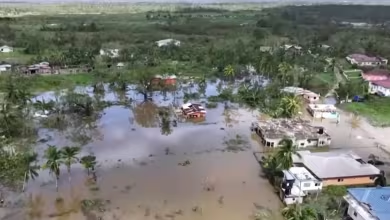
What we know
- Hurricane Melissa made landfall in Cuba this morning as an "extremely dangerous" Category 3 hurricane, the National Hurricane Center in Miami said.
- More than 30 deaths are being attributed to the storm across Jamaica, Haiti and the Dominican Republic, according to officials.
- As of 5 p.m. ET, the now-Category 1 storm had moved off Cuba and was heading toward the Bahamas, the NHC said. It is expected to bring heavy rain and flooding to the southeast Bahamas.
- Melissa made landfall in Jamaica as a Category 5 hurricane around 1 p.m. ET yesterday as the strongest hurricane in the island's history. Prime Minister Andrew Holness declared the country a disaster area, with St. Elizabeth Parish reported to be "underwater."
- The storm was the most powerful of the 2025 Atlantic hurricane season and one of the strongest hurricanes to make landfall in the Atlantic basin.
- George Solis is reporting from Kingston, Jamaica, for NBC News.
Hurricane Melissa was a rare event, even with climate change
Climate change boosted Hurricane Melissa’s wind speed by about 7% and it made a storm that would have been expected once every 8,000 years about four times as likely.
That’s according to a new rapid analysis of the effects global warming had on the hurricane, released this evening by the Grantham Institute at Imperial College in London.
The research suggests the storm was an extremely rare event, even with global warming providing it extra heat in the sky and sea, which acts as fuel for tropical storms. The study suggests a storm as powerful as Hurricane Melissa could be expected once every 1,700 years in today’s climate, which has warmed roughly 1.3 degrees Celsius (2.3 degrees F) since the Industrial Revolution.
“Man-made climate change clearly made Hurricane Melissa stronger and more destructive,” Ralf Toumi, director of the Grantham Institute, said in a news release. “These storms will become even more devastating in the future if we continue overheating the planet by burning fossil fuels.”
The researchers did not estimate the effects of climate change on rainfall totals or flooding in Jamaica. They said that they typically use satellite data to do those calculations and that such data is not available because of the U.S. government shutdown.
The team used 42 years of tropical storm data to create a model that can estimate the statistical likelihood of hurricanes in different climatological conditions.
The resulting analysis has not yet undergone peer review because the storm made landfall so recently. However, the researchers outlined their process in a peer-reviewed 2024 research paper, and their analysis of a 2013 typhoon held up to peer review in the journal of Atmospheric Science Letters.
The findings roughly track with estimates from a group called ClimaMeter, which also performs quick analyses of major weather events. The group suggested that Hurricane Melissa had about 10% more rainfall and 10% stronger winds because of climate change.
State Department delayed by shutdown, elimination of USAID in storm response
The United States was delayed in sending a disaster assistance response team (DART) to Jamaica ahead of Hurricane Melissa, one former and two current U.S. officials told NBC News, citing the limited available resources resulting from the government shutdown and a lack of preparedness after the elimination of USAID.
USAID, the federal agency responsible for distributing foreign aid, was dismantled by the Trump administration this year after criticism by President Donald Trump and Elon Musk.
Under USAID, a DART team would have been pre-positioned on the ground ahead of the Category 5 hurricane that struck Jamaica yesterday and devastated large parts of the country.
Instead, with many employees furloughed, the State Department team missed its window to fly in advance of the hurricane, a former U.S. official said, and with most airports closed for commercial flights because of the storm, the team is just now deploying to the region.
The State Department announced this morning it was sending a regional DART team and activated U.S. urban search-and rescue teams to help in the response.
“These teams are working with affected countries and local communities to determine what assistance is needed and with interagency, international, and U.S. military partners to coordinate emergency response efforts,” the State Department announced on X.
Despite the cuts to USAID and humanitarian assistance budgets more broadly, the State Department will still be able to provide disaster relief to Jamaica and other countries in the region — it will just be “smaller, slower and less organized,” a U.S. official said.
A State Department spokesperson said late last night Tuesday that the United States had received a formal assistance request from the Jamaican government. But Jamaica informally requested U.S. assistance days before, according to a U.S. official and a former U.S. official.
“You need a flexibility of an agency that can get out there as fast as possible, give people cash to go out and do stuff that has not happened yet,” the former U.S. official said. “And that’s the sad part.”
The U.S. military is reviewing standing plans for U.S. military support to U.S. interagency-led foreign disaster assistance missions, a U.S. Southern Command spokesperson said.
“As a preparatory measure, we have initiated planning to deploy a situational assessment team that will be tasked with evaluating the conditions in hurricane-stricken areas and the unique requirements needed for timely and effective life-saving, urgent humanitarian aid, and disaster response operations,” the SOUTHCOM spokesperson said. “Future decisions on potential U.S. support will be based on their assessments, but it is still too soon to speculate on what that support will consist of.”
Before/after satellite views reveal extent of damage in Jamaica
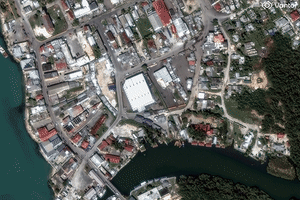
Black River, a city in Jamaica, in satellite views from February and today after the passage of Hurricane Melissa.
Melissa drops to Category 1 as it moves to Bahamas
Hurricane Melissa’s maximum sustained winds dropped from 100 mph to 90 mph hour this afternoon, the National Hurricane Center said at 5 p.m. ET, making it a Category 1 storm.
But damaging winds, flooding rain and a dangerous storm surge will persist for the Bahamas through tonight, the agency said.
The center of the hurricane is expected to move over southeastern or central Bahamas this evening and to pass near or to the west of Bermuda tomorrow night, the NHC said.
The southeast Bahamas are forecast to get 5 to 10 inches of rain through tomorrow morning, which will cause flash flooding, it said.
Hurricane conditions will start in Bermuda tomorrow and tomorrow night, the agency said.
At 5 p.m. ET, the center of the hurricane was around 110 miles south-southeast of the central Bahamas, the NHC said, and it was moving northeast at 15 mph.
King Charles 'deeply concerned and profoundly saddened' by destruction
Britain’s King Charles III said he and Queen Camilla “have been deeply concerned and profoundly saddened to see the catastrophic damage” across Jamaica and the Caribbean. He said he continues to closely follow the situation.
“Above all, our most heartfelt sympathy is with the families, friends and loved ones of those who have tragically lost their lives,” the king said in a statement the royal family shared on X. “Jamaica is a land for which I have had the greatest affection ever since I first visited the island while serving in the Royal Navy on the West Indies station over fifty years ago. I know no disaster can break her people’s enduring spirit of strength, solidarity, and steadfastness.”
Charles thanked first responders, volunteers and front-line workers.
“This most dreadful of record-breaking storms reminds us of the increasingly urgent need to restore the balance and harmony of Nature for the sake of all those whose lives and livelihoods may have been shattered by this heartbreaking disaster,” he said.
Jamaican airports will begin to reopen, official says
Some airports in Jamaica will begin to reopen, an official said today.
Transport Minister Daryl Vaz said on X that both Norman Manley International Airport, in Kingston, and Ian Fleming International Airport, in Saint Mary Parish, will resume commercial flights tomorrow morning.
Relief flights began today at 4 p.m. ET at Norman Manley and will start at 10 a.m. ET tomorrow at Sangster International Airport, in Montego Bay.
Jamaican official posts aerial video of airport in the Palisadoes
Jamaica's telecommunications minister, Daryl Vaz, posted aerial video of an airport in the Palisadoes on X and vowed it would reopen soon.
Damage from Hurricane Melissa is 'incalculable' in Cuba
The damage from Hurricane Melissa is “incalculable,” with major flooding that has left homes underwater and rivers overflowing and triggered landslides in the Cuban town of El Cobre, according to NBC News in Havana.
The municipality of Guama, where the hurricane made landfall, is now cut off by extensive flooding.
Cuban Foreign Affairs Minister Bruno Rodriguez, speaking at the United Nations, said the island is dealing with the hurricane aftermath “with virtually no resources.”
Infant girl died during storm in Jamaica, officials say
An infant girl was killed during the storm in St. James Parish, Jamaica, according to officials.
The Jamaica Constabulary Force in St. James Parish and Jamaican State Minister Abka Fitz-Henley told NBC News that an infant died during the storm after preliminary reports revealed that a tree fell on her house.
The officials noted, however, that the reports over her cause of death were preliminary and not yet confirmed to be as a result of the storm.
The new face of major hurricanes
Hurricane Melissa followed what has become an unfortunate pattern for major storms. It formed late in the season, intensified rapidly, then stalled near the coast before it made landfall.
The most catastrophic storms — those with the most intense winds and soaking rains — are becoming likelier because of climate change.
Before Melissa hit Jamaica as a Category 5 storm, it churned over especially warm waters — as other hurricanes did over the past decade. That allowed it to strengthen at a blistering pace, becoming the most powerful storm of this year’s Atlantic season and tying the record for strongest landfall ever in the Atlantic.
Then the storm slowed to a crawl, giving it more time to dump rain on Jamaica, another hallmark of hurricanes on a warming planet. Melissa’s timing, too, was notable: It formed late in the season, as ocean heat lingered into the fall in the Caribbean.
Taken together, that behavior makes Melissa a kind of poster child for the new normal of hurricanes, experts said.
“These storms aren’t the same storms as a couple decades ago,” said Shel Winkley, a meteorologist at the nonprofit research group Climate Central.
At least 36 dead in wake of Hurricane Melissa
At least 36 deaths across Jamaica, Haiti and the Dominican Republic are being attributed to the storm, according to officials.
Three people died in Jamaica as they were while preparing for the storm, officials from the Jamaica Information Service said at a news conference Monday. Four more bodies were found today, the Jamaica Constabulary Force said in a statement.
Haiti Civil Protection confirmed three deaths from the storm. An additional 25 people died in floodwater in the southern coastal town of Petit-Goâve, the town's mayor told The Associated Press today.
In the Dominican Republic, an adult died after having been sucked in a sewer while trying to clean it, the deputy director of the country's emergency agency, Julian Garcia, told NBC News.
Damaging winds and heavy rain expected in Bahamas and eastern Cuba
Damaging winds, flooding rains and a dangerous storm surge are expected tonight through tomorrow afternoon as Hurricane Melissa bears down on the Bahamas and eastern Cuba, the National Hurricane Center said in its 2 p.m. update.
The storm is about 110 miles south-southeast of the central Bahamas and has maximum sustained winds of 100 mph. It’s moving at 15 mph.
Eastern Cuba should expect to see rainfall totals of 10 to 20 inches. Life-threatening and potentially catastrophic flash flooding with landslides are possible, according to the center.
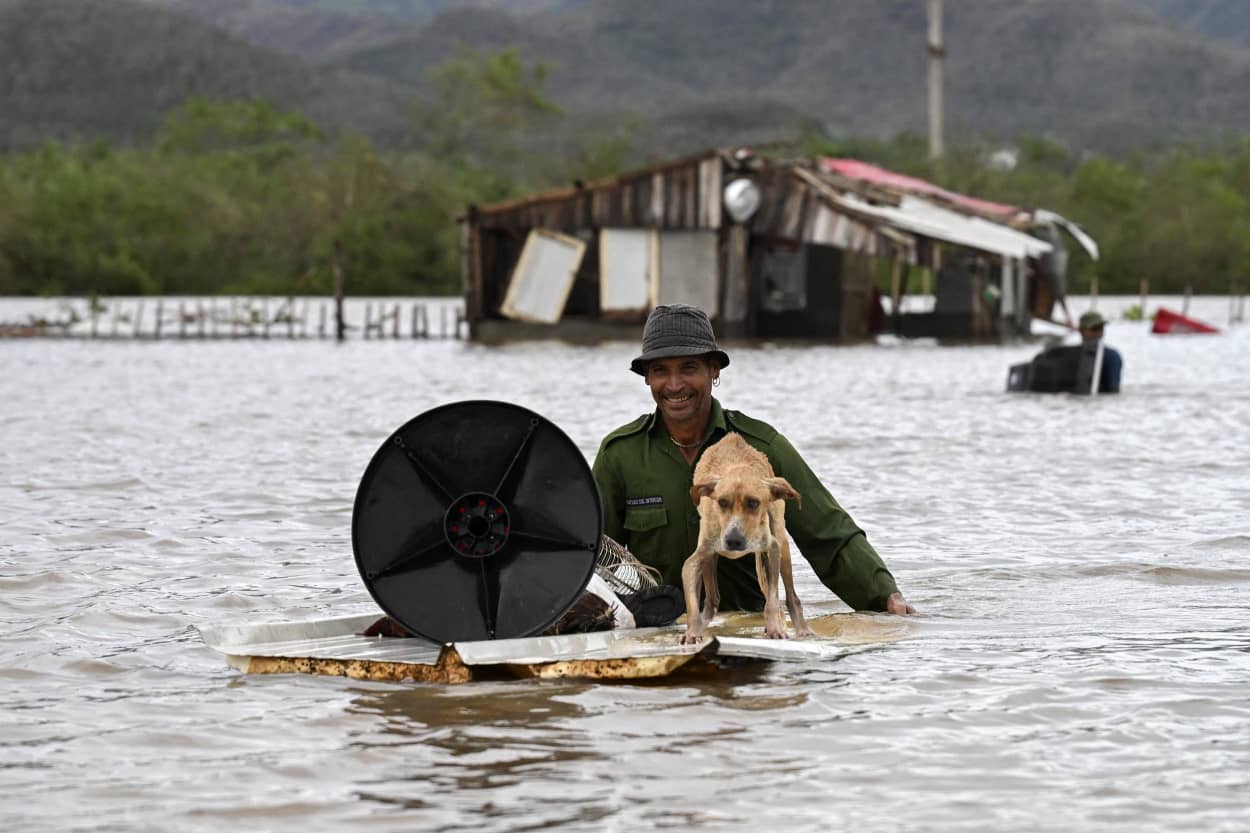
A farmer rescues his dog and some belongings from his flooded house today in San Miguel de Parada, eastern Cuba. Yamil Lage / AFP - Getty Images
In the southeast Bahamas, rainfall totals of 5 to 10 inches are expected, which could lead to flash flooding.
A hurricane warning is in effect for Bermuda, southeastern and central Bahamas, and the Cuban provinces of Granma, Santiago de Cuba, Las Tunas, Holguin and Guantanamo. Haiti, Turks and Caicos, and the Cuban province of Camaguey are under a tropical storm warning, the center said.
Photos: Flooding in Cuba washes away bed, drowns farm animals
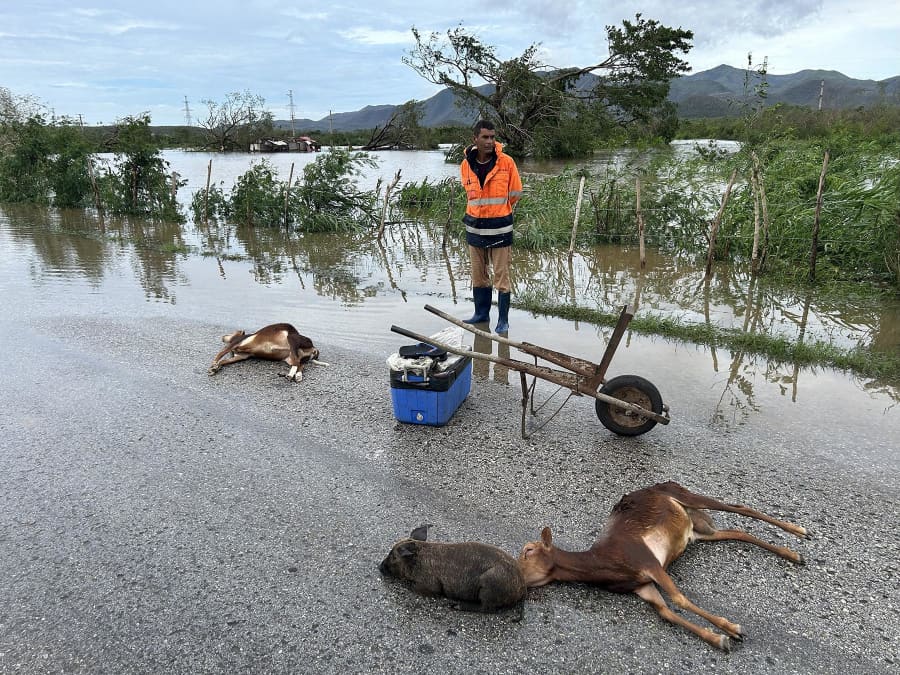
A farmer stands next to some of his drowned animals in Santiago de Cuba, in the country's southeast.
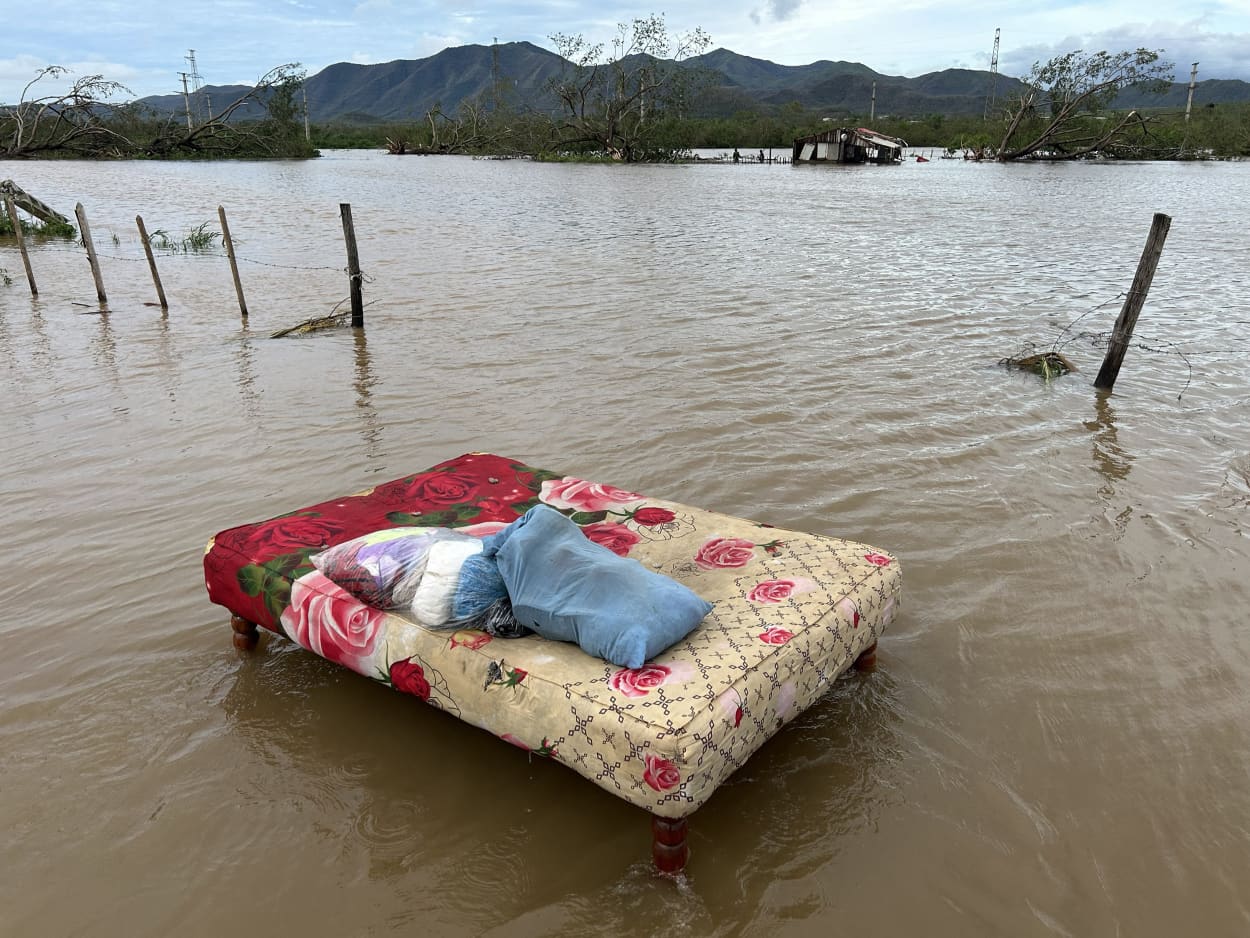
A bed washed away by floods in Santiago de Cuba.
Bahamas to experience hurricane conditions today, NHC says
Officials from the National Hurricane Center said at a news conference this morning that the Bahamas will experience hurricane conditions, life-threatening storm surge and flooding rain later today and into tonight.
Authorities added that the southeastern Bahamas should expect up to 25 inches of rainfall and 4 to 7 feet of storm surge above ground level.
Photos: Family salvages belongings from destroyed home in Cuba
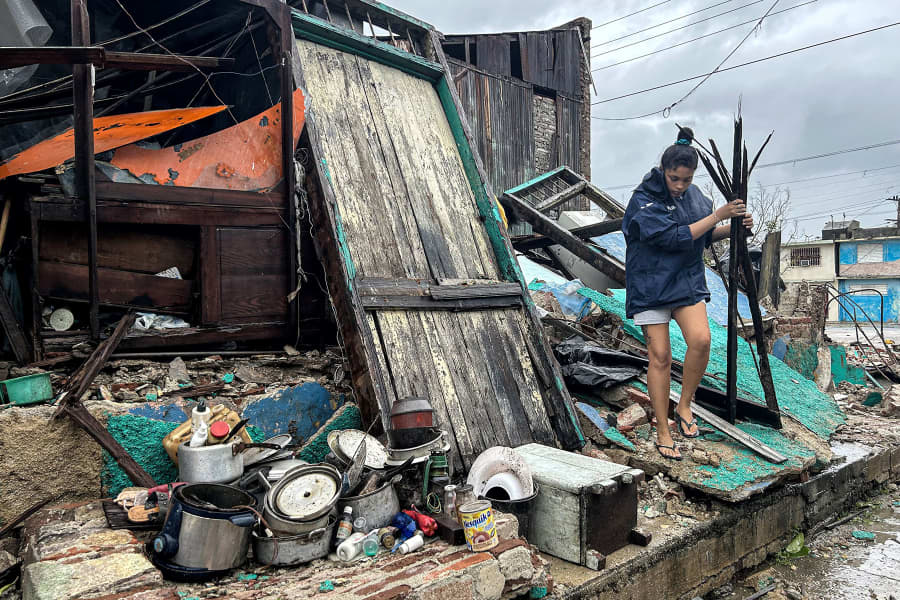
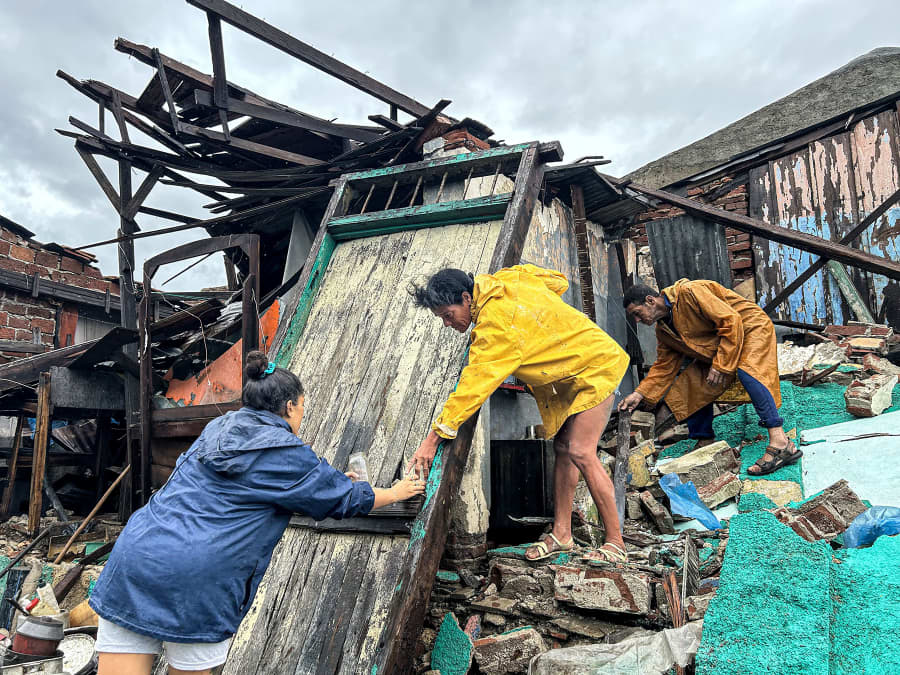
A family in Santiago de Cuba, in the southeast part of the island, recovered what they could from the rubble of their home today.
Residents, prisoners and officers shelter together at Jamaican police station
Officials said that residents, prisoners and police officers were seeking refuge at a Black River police station.
In a video posted on Instagram on Tuesday night, the Jamaican Constabulary Force said homes around the police station in southwest Jamaica were damaged, prompting residents to seek refuge there.
The officials speaking in the video said that prisoners are also at the police station.
"The priority at this time is to ensure that no life is lost at this facility," one official said.
A hospital in Jamaica 'devastated' by storm, lawmaker says
Jamaican lawmaker Desmond McKenzie said at a press conference this morning that a hospital in the southwestern part of the country has been "devastated."
"The Black River Hospital has been devastated, for want of a better word," he said.
McKenzie said that health officials also delivered a "Melissa baby" in the past 24 hours, without specifying if the baby was born at the same hospital.
Melissa moves on from Cuba and is in Atlantic Ocean, National Hurricane Center says
Melissa has officially moved on from Cuba and is in the southwestern Atlantic Ocean, the National Hurricane Center said in an updated advisory.
But it leaves behind damaging winds, heavy rain and flooding for both Cuba and the Bahamas, where Melissa is headed.
Too early to detail storm's damage, officials say
Jamaican lawmaker Hon. Desmond McKenzie said at a press conference on Wednesday morning that it's too early to determine the full extent of the storm's damage.
"We know that it’s western Jamaica that has the brunt of the impact. We will have to give you that in the coming days,” she said, adding that central Jamaica also had “a lot of damage, a lot of flooding.”
Jamaican lawmaker Hon. Desmond McKenzie added that the government cannot say whether anyone has died from the storm, despite local reports of deaths.
"We are not in a position to make an official statement on deaths because we have not received any such information," he said.
Montego Bay Mayor says there is 'a lot of work to do'
Montego Bay Mayor Richard Vernon gave an update on his city this morning, letting NBC News know the damage in the popular tourist area is "very extensive."
Officials were able to assess some of the damage starting at 9 p.m. yesterday after several calls came in about roads being inundated with water.
Currently, Vernon said, there is no power as the major supplier is down, and utilities are damaged. Infrastructure also took a big hit, including both public and private assets. Vernon is working on getting information about when the Montego Bay Airport is going to open as it is also badly damaged.
"Thus far, this is suggesting we have a lot of work to do in the coming weeks," Vernon said.

Describing the scenes from last night, when Melissa made landfall on Jamaica, Vernon said residents were sitting on their roofs to stay safe from high floodwaters. He said as water recedes, they have been able to get back into their homes, but they are badly damaged.
Now, officials are working on clearing roads within Montego Bay so people have access to essential services and to the hospital, and then they will focus on clearing roads out of the city so they can get to other places in the country.
Tourists have been stuck in hotels and a shelter in the city's convention center, but Vernon said they have been provided with food and water and anything else they need to stay comfortable.
The area will be in lockdown for a few days until officials can move people effectively. Vernon said he understands how "shocking" it is for tourists who were here for vacation and were instead met with a massive storm.
At least 250,000 children in Jamaica severely affected by Melissa, UNICEF rep says
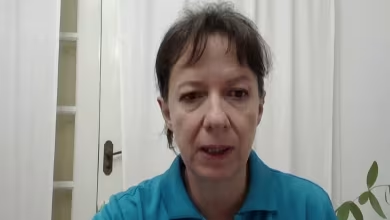
Olga Isaza, the UNICEF representative for Kingston, Jamaica, spoke about the struggles at least 250,000 children will have to face after Hurricane Melissa devastated the island.
Isaza said the priorities and concerns for UNICEF are water, sanitation, hygiene, and food for the children in affected areas.
"The impact is huge," Isaza told NBC News, noting the quarter of a million children who were severely affected by the Category 5 storm.
UNICEF faces several challenges in helping those in need right now, Isaza said, namely the major roadblock: the airports. They need the airports to reopen so they can receive aid to distribute on the Island.
"Everybody that is here, we really need your support. It’s a matter of solidarity," Isaza said. "The climate change has impacted all of us."
77% of Jamaica is without electricity, officials say
Jamaican Information Minister Dana Morris Dixon said at a press conference this morning that 77% of Jamaica remains without electricity.
Photos: Residents survey destruction in Jamaica
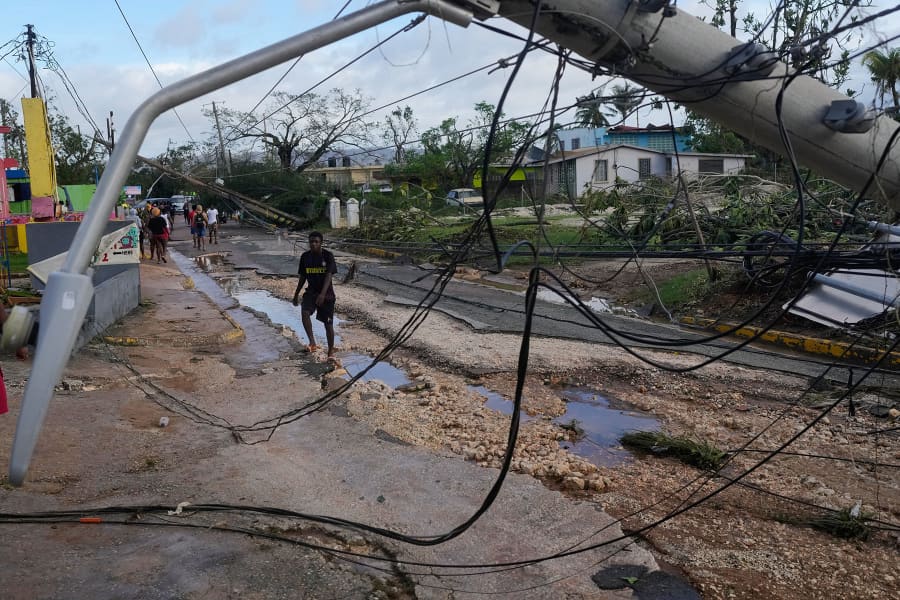
A tangle of utility lines in Santa Cruz today.
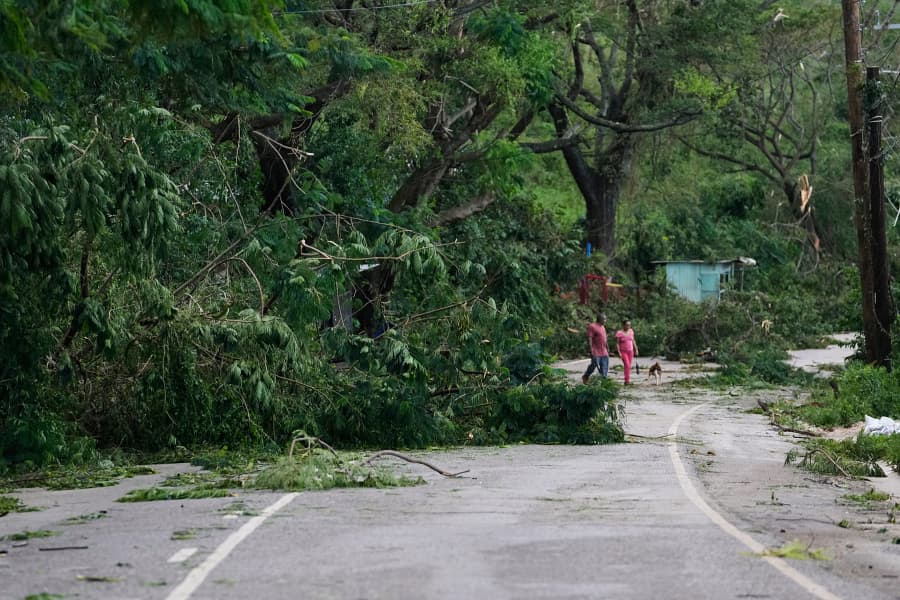
Downed trees in Spurr Tree.
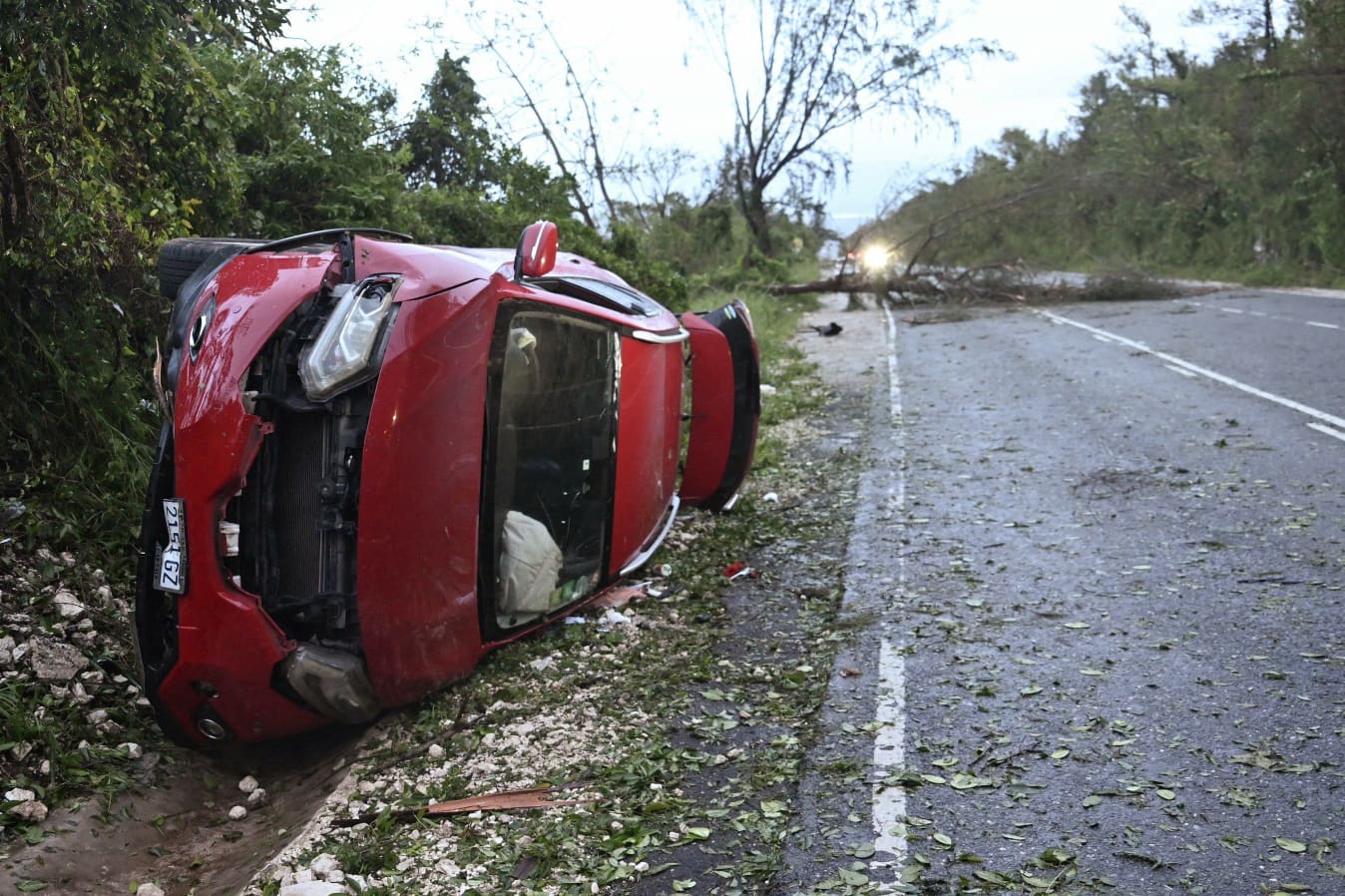
An overturned car in Manchester.
Storm tracker: Hurricane Melissa
After barreling through Jamaica, Cuba and the Bahamas, Hurricane Melissa is projected to move northeast across the Atlantic Ocean and dissipate.
By Saturday, the remnants of the once-Category 5 hurricane will be a tropical storm heading toward northern Europe.
Satellite images show Hurricane Melissa making landfall in Jamaica
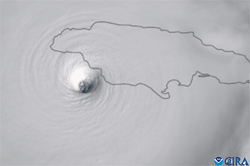
Hurricane Melissa made landfall yesterday near New Hope, Jamaica, as a Category 5 storm.
Videos show destruction in Melissa's aftermath
Video released by officials shows homes in rubble, downed trees and flooding in Jamaica.
One video posted on Instagram by the Jamaica Constabulary Force shows homes reduced to pieces, widespread flooding, downed fences and other destruction.
Another posted by the same account shows officials using chainsaws on downed trees.
Melissa expected to hit Bahamas later today, National Hurricane Center says
Melissa is expected to move offshore of eastern Cuba this morning before tracking across the southeastern and central Bahamas later today, the National Hurricane Center said.
"Melissa is expected to remain a powerful hurricane when it moves across the Bahamas later today and passes near Bermuda on Thursday night," the agency said in its latest update.
Tropical storm conditions are also expected in Haiti and the Turks and Caicos Islands today.
Melissa has already caused widespread damage in Jamaica, where storm totals have reached 12 to 24 inches of rain. Eastern Cuba is facing similarly dangerous conditions, with catastrophic flash flooding and numerous landslides forecast to continue affecting communities throughout the day.
Melissa now a Category 2 hurricane
As of 8 a.m. ET today, Melissa is a Category 2 hurricane with 105 mph winds. It is located 45 miles northwest of Guantanamo, Cuba, and moving northeast at 14 mph.
Nonprofit director 'confident the country will come together'
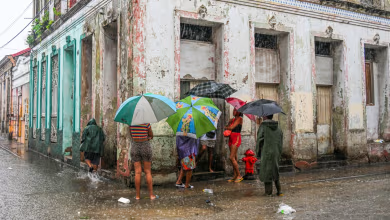
Sarah Hsia, the director of The American Friends of Jamaica, lives in Kingston and said that while she and her family are "relatively unscathed" from the storm that wreaked havoc on the island last night, other places aren't so lucky.
Places such as St. Elizabeth, Black River, Montego Bay and Clarendon are in "really dire straits," she told NBC News, after Hurricane Melissa dumped rain on the island and major winds left behind plenty of damage.
Cash is king right now, Hsia said, and the AFJ is matching up to $1 million in donations that will go toward things such as new roofs for houses whose roofs were blown off and new furniture after many people's belongings were soaked through and ruined.
She described the island as "complete devastation."
But "we are resilient people," Hsia said. "We are born from struggle... I have no doubt the country is gonna pull together."
Jamaica has made great progress since Hurricane Beryl last year, Hsia said, and she is "confident the country will come together and respond in short order."
Storm surge in Cuba could reach 12 feet high
As Hurricane Melissa barrels into Cuba, storm surge in parts of the island could reach 12 feet.
In the Bahamas, storm surge heights are projected to be 5 to 8 feet high. And in the Turks and Caicos, storm surge heights are expected to reach 2 to 4 feet.
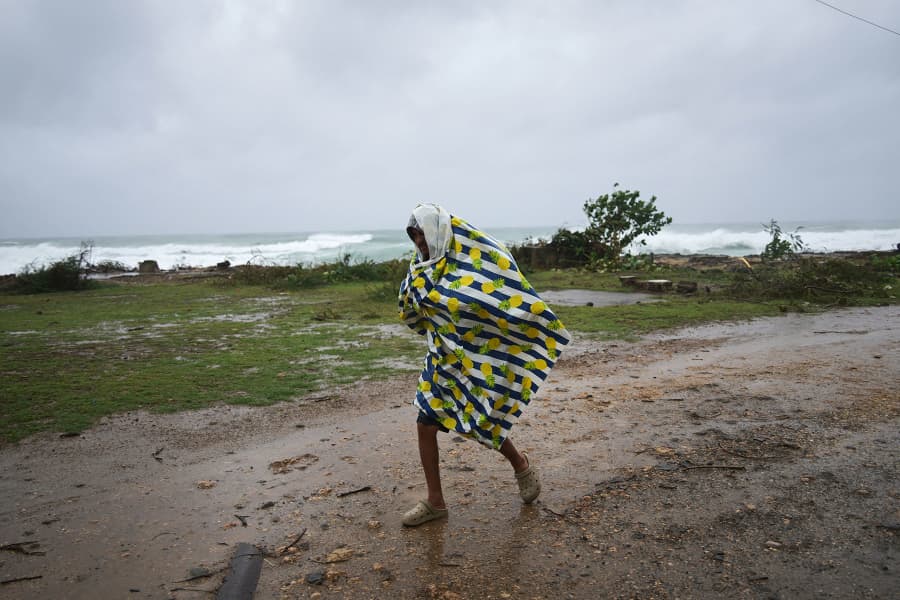
A man walks in the rain before the arrival of Hurricane Melissa in Santiago de Cuba yesterday. Ramon Espinosa / AP
Hurricane Melissa shattered records
As Melissa continues to barrel through the Caribbean, the late-season hurricane has already shattered several records:
Melissa is the strongest hurricane on record to make landfall in the Atlantic, tied with the 1935 Labor Day Hurricane for both wind speed (185 mph) and pressure (892 mb). It is also the strongest hurricane recorded this late in a hurricane season.
The storm joins only four other Atlantic hurricanes in remaining a Category 5 hurricane for more than 36 hours. (The average Category 5 storm remains at a Category 5 level for 18 hours.)
This hurricane season came close to shattering records, trailing only 2005 for having the most Category 5 hurricanes in a single season, which saw three storms of that caliber.
State Department increases Jamaica travel advisory
The U.S. State Department increased the travel advisory for Jamaica to a level 3 this morning after Hurricane Melissa tore through the island overnight.
In a post on X, the department said it is deploying a regional disaster assistance response team and activating U.S.-based Urban Search and Rescue (USAR) teams to help increase response efforts.
Those teams are working locally to determine what assistance may be needed and will coordinate with other agencies to deliver it.
Pope Leo says he prays for those affected by the hurricane
Pope Leo expressed his closeness to the victims of Hurricane Melissa, which struck Cuba this morning after devastating Jamaica.
During his weekly audience at the Vatican, the pope said he is praying “for those who have lost their lives, for those who are fleeing, and for the populations who, as they await the storm’s developments, are living through hours of anxiety and concern.”
He urged civil authorities to “do everything possible” to assist those in need and thanked Christian communities and volunteers providing emergency support.
Hurricane Melissa makes landfall in Cuba after devastating parts of Jamaica
Hurricane Melissa continued its destructive path, making landfall in Cuba as a powerful Category 3 storm after devastating parts of Jamaica. NBC News’ Ed Augustin reports on what lies ahead for Cuba, and the director of The American Friends of Jamaica, Sarah Hsia, spoke about the current condition on the ground in Jamaica.
It's still too early to tell what kind of damage Cuba will see, but early images show heavy rain and flooding in the streets. Winds are already blowing trees over as Melissa grows closer.

Scenes of Jamaica the day after Melissa and a long recovery to come
Images showed cars almost completely submerged as visitors staying at the hotel were forced to evacuate their rooms to the hotel's ballroom to wait out the storm after Hurricane Melissa made historic landfall in Jamaica as a Category 5 hurricane.
Officials have said the country’s infrastructure has been compromised by flooding and damaging winds. Just assessing the damage could take weeks, and airport closures have hampered recovery efforts. Officials will be assessing airports in Kingston and Montego Bay today.
Melissa was a Category 5 for 36 hours — the longest previously was 18 hours. The massive storm is now moving toward Cuba as a Category 3 storm.
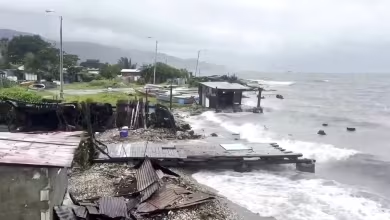

Severe flooding inundated streets in Santiago de Cuba as Hurricane Melissa brought heavy rains and strong winds upon making landfall in the island nation of Cuba. Footage showed torrents of water rushing through roads and people navigating flooded areas outside homes, with one carrying a dog to safety.
Final preparations as Hurricane Melissa heads toward Bahamas
Government officials in the Bahamas are urging people to ensure their safety amid final preparations for the storm's arrival later today in the southeast and central parts of the country.
“This is your final opportunity to ensure your safety. If you have not already found secure shelter, please do so immediately,” Leon Lundy, disaster risk management minister, said in a press briefing last night.
According to the authorities, 1,348 residents had been safely evacuated from the southern Bahamas.
“This is the most extensive pre-event evacuation exercise undertaken by the government of The Bahamas in recent history,” said Aaron Sargent, managing director of the Bahamas Disaster Risk Management Authority.
Meteorologists forecast Melissa to stay a strong hurricane as it moves over Cuba and heads toward the Bahamas.
Photos: Cuban authorities help hundreds of thousands evacuate to shelters and higher ground
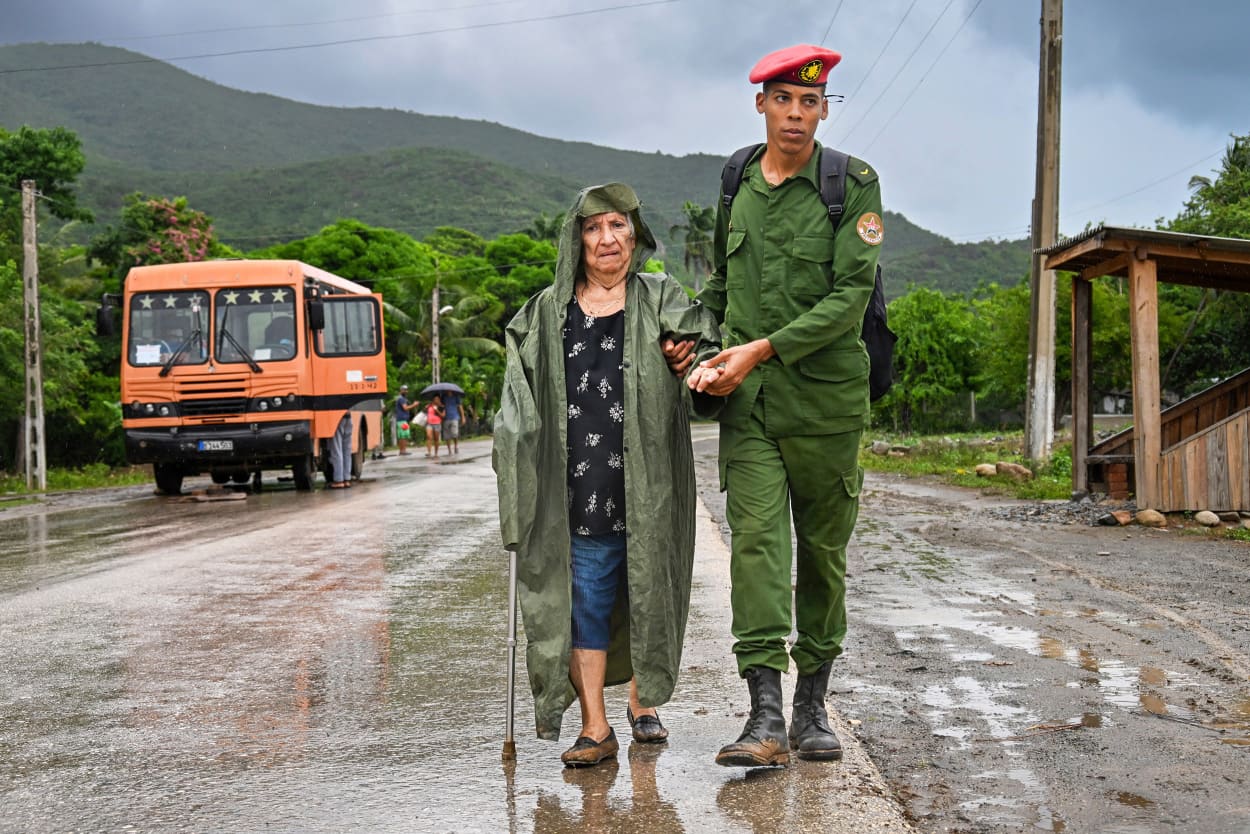
A soldier helps evacuate an elderly woman to a secure location in Santiago de Cuba yesterday. Yamil Lage / AFP via Getty Images
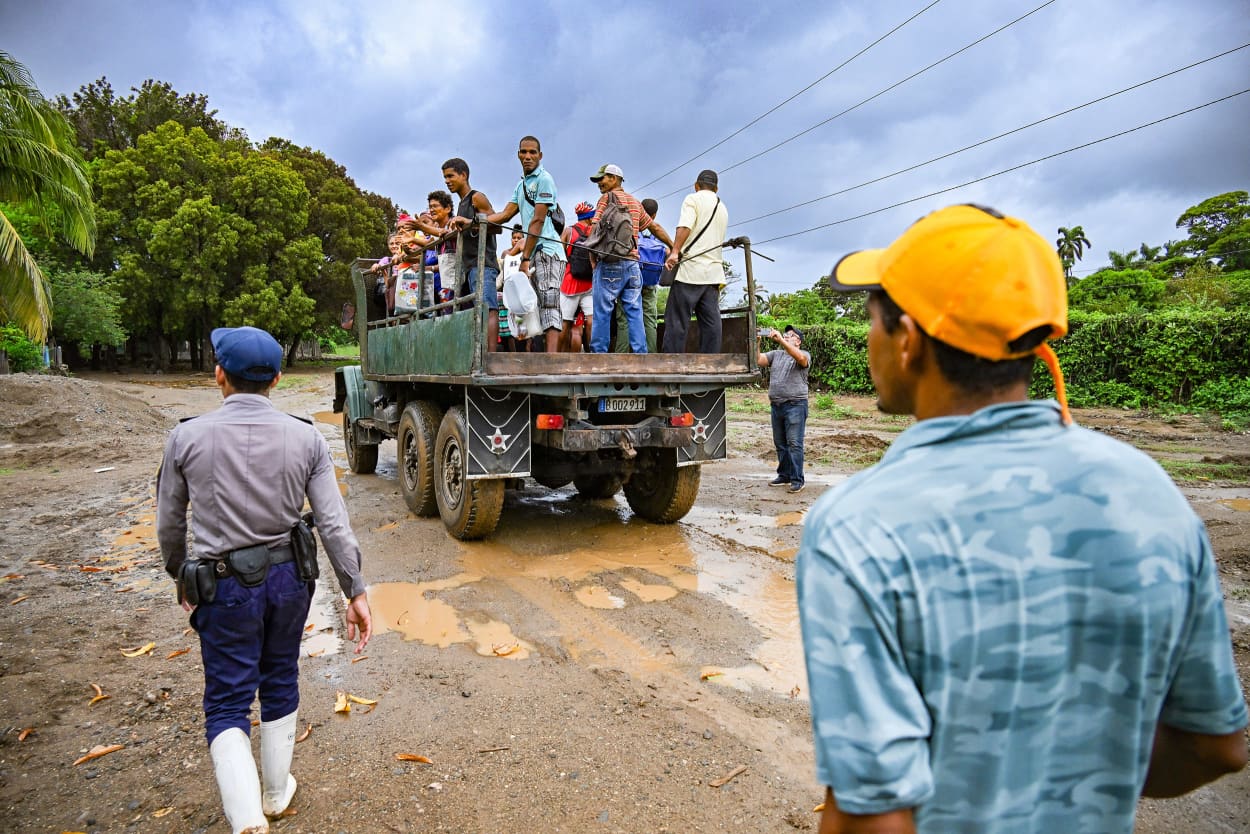
Residents are evacuated from Playa Siboney in Santiago de Cuba yesterday. Yamil Lage / AFP via Getty Images
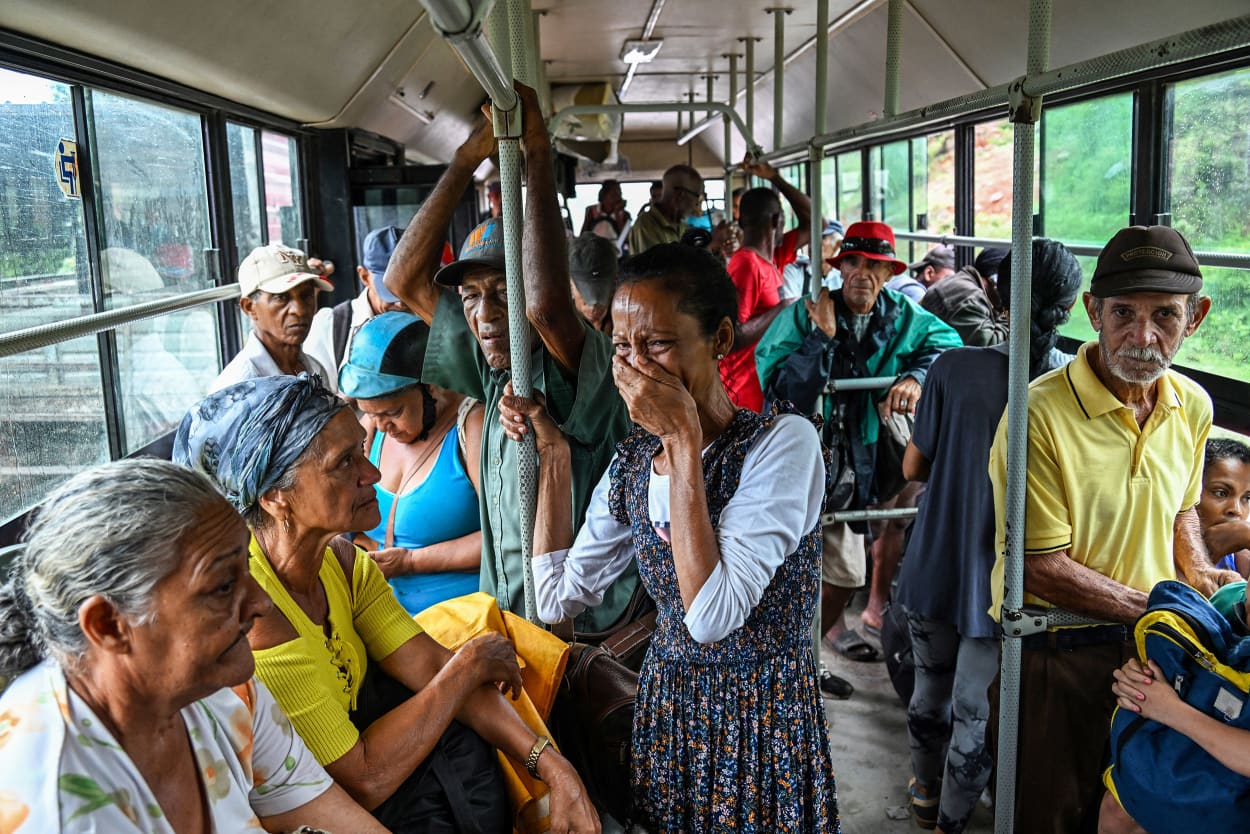
Residents are evacuated via bus from Playa Siboney to safe locations in Santiago de Cuba yesterday. Yamil Lage / AFP via Getty Images
People in the province of Santiago de Cuba were among the more than 700,000 evacuated their homes across the country ahead of Hurricane Melissa's arrival on the southern coast of eastern Cuba this morning.
Jamaican police working on destruction sites as recovery efforts begin
Emergency services in Jamaica have begun clearing debris and assessing the damage left behind by the storm, according to online footage shared by Jamaican police showing officers gathered at scenes of destruction this morning.
In St. Elizabeth Parish, the breadbasket of the country which was left "underwater" according to officials last night, police officers can be seen on flooded streets amid rubble from collapsed building, which has damaged parked cars and blocked several roads.
Another police unit was seen removing a fallen tree from Montrose Road in St. Andrew to restore safe passage for drivers and pedestrians.
Satellite imagery shows the sheer size and power of Hurricane Melissa
Hurricane Melissa is seen here in a satellite picture over Jamaica last night where it weakened to a Category 4 storm, covering much of the Caribbean and bringing severe weather to the region.
The storm made landfall in Cuba this morning as a Category 3 and is expected to remain a strong hurricane as it moves toward the Bahamas and Bermuda today and tomorrow.
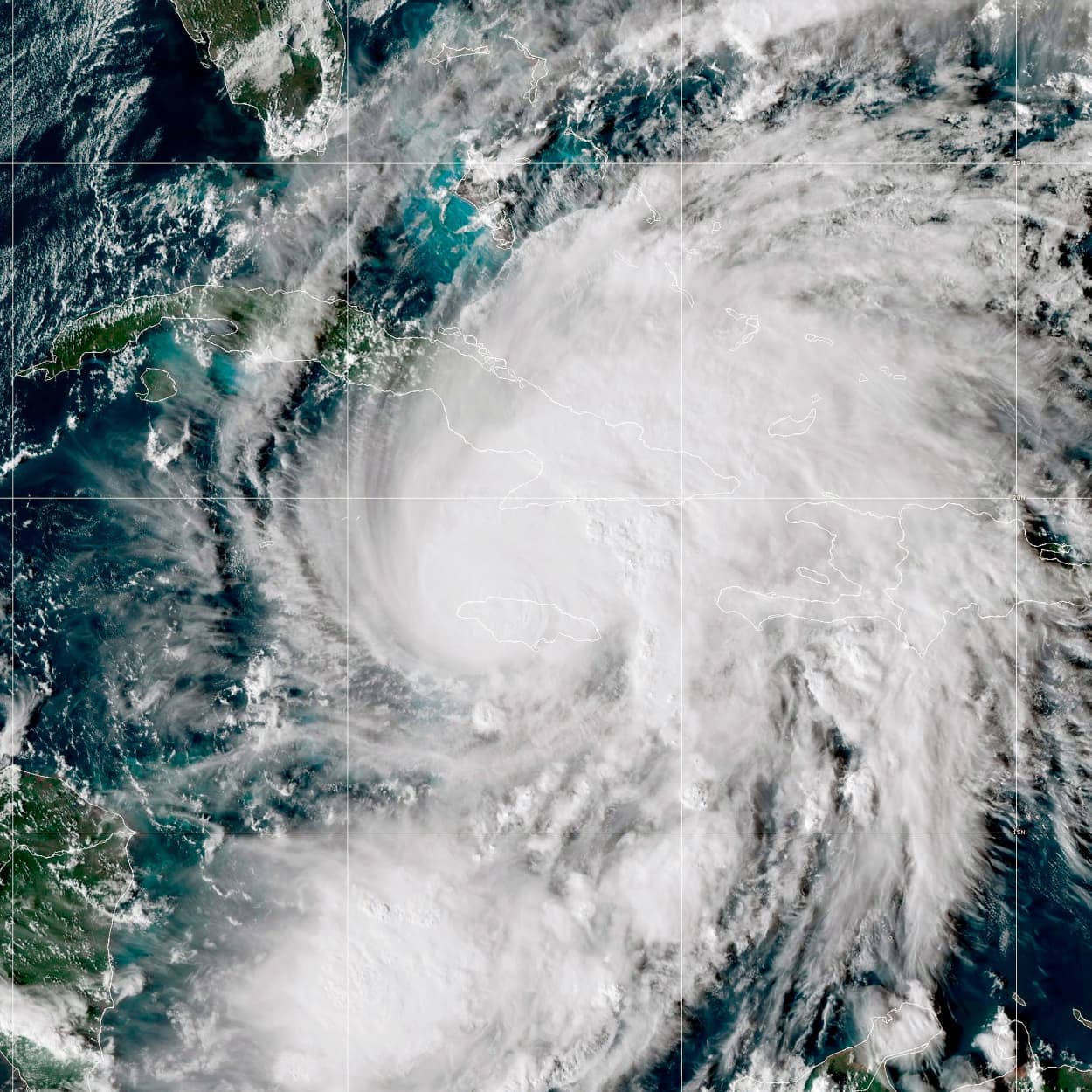
Melissa to remain a strong hurricane as it moves to the Bahamas and Bermuda
Although Hurricane Melissa will weaken as it moves over Cuba, it will still be a powerful hurricane as it moves north toward the the Bahamas later today and toward Bermuda later this week, the National Hurricane Center said.
"Over the next few days, increasing vertical wind shear, cooler waters, and a drier surrounding mid-level environment will likely induce further weakening," the agency said in a forecast analysis this morning.
"However, Melissa is forecast to still be a hurricane when it makes it closest approach to Bermuda later this week."
'We will rebuild,' Jamaican prime minister vows
After Melissa tore through Jamaica as a catastrophic Category 5 storm, causing widespread infrastructure damage and leaving hundreds of thousands without power, Jamaican Prime Minister Andrew Holness said his attention had already turned to the recovery.
“Our country has been ravaged by Hurricane Melissa but we will rebuild and we will do so even better than before,” Holness said on X.
He said he recognized the hardships faced by residents in the worst affected areas and that the government is moving swiftly to deliver relief.
Jamaican official says 25,000 tourists remain on the island
As Jamaica rallies support and coordinates recovery efforts in the aftermath of Hurricane Melissa, around 25,000 tourists remain on the island, according to Dr. Dana Morris Dixon, minister of education, skills, youth and information.
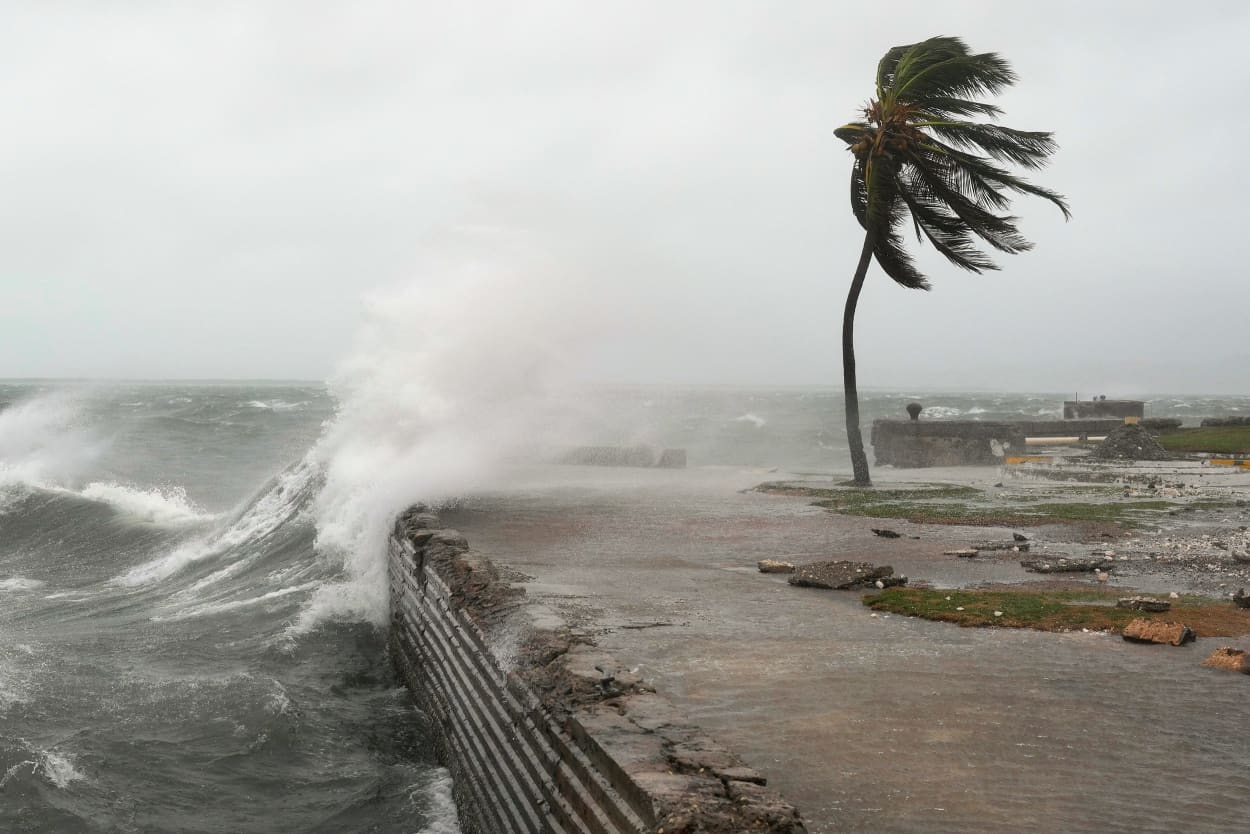
Waves crashing in Kingston, Jamaica, yesterday. Matias Delacroix / AP
The Tourism Ministry is working closely with hotels across Jamaica, coordinating support and ensuring the safety of visitors, she said.
“There is no need to worry. The Ministry of Tourism has its center that is in constant communication with all of the hotels, has been providing support and so we are keeping those tourists as safe as we possibly can,” Morris Dixon said in a press briefing.
‘The damage is significant’: Jamaican PM gives update on state of country
NBC News spoke to Jamaican Prime Minister Andrew Holness last night about the state of the country and how residents are being impacted.
The storm made landfall yesterday as an extremely powerful Category 5 storm and has caused widespread flooding and devastation.
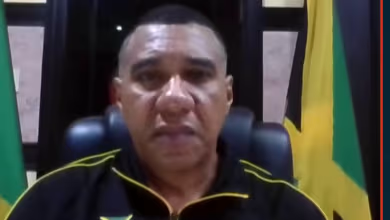
People still sheltering in Haiti as storm rages in the Caribbean
People were seen gathering at a school-turned-shelter in Haiti last night as the island of Hispaniola continues to see downpours from the outer bands of Hurricane Melissa.
The storm is churning toward Cuba after making landfall in Jamaica yesterday.
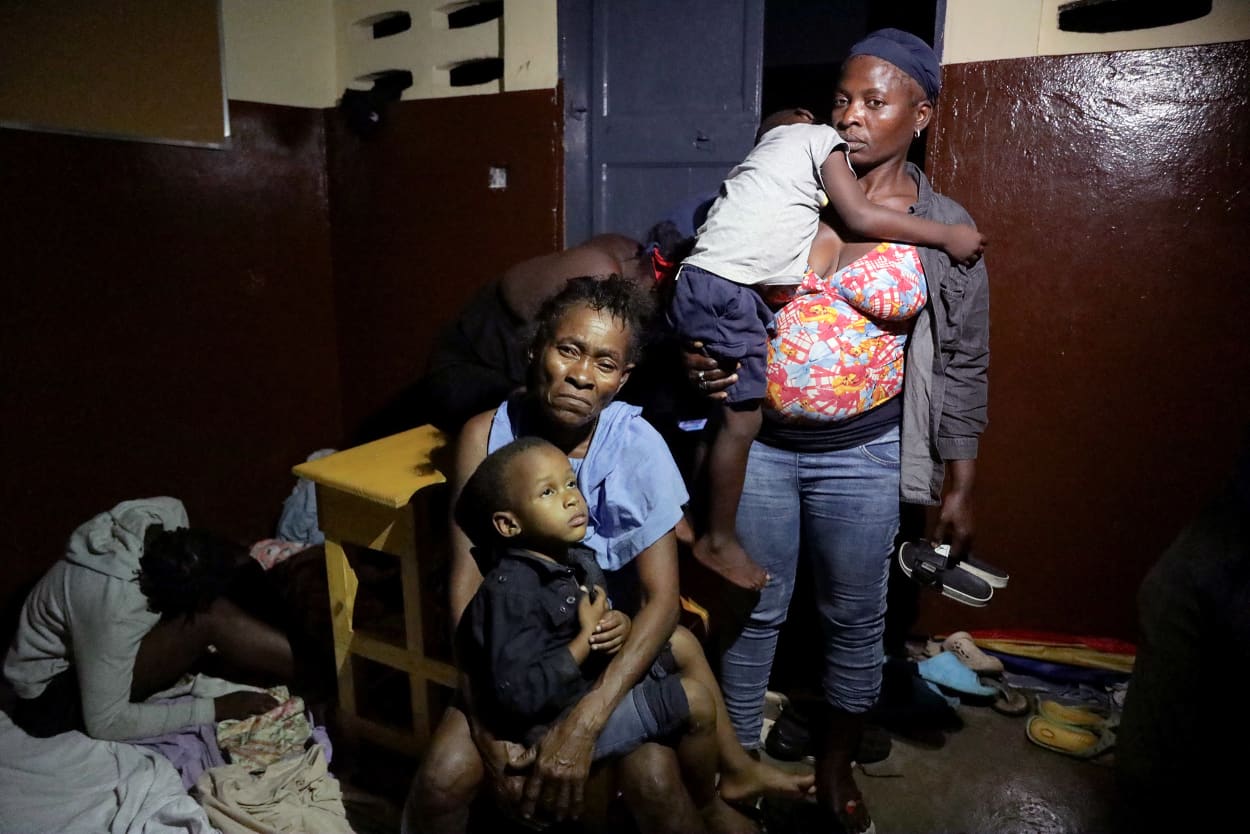
Hurricane Melissa makes landfall in Cuba as an 'extremely dangerous' storm; more thanr 700,000 evacuate
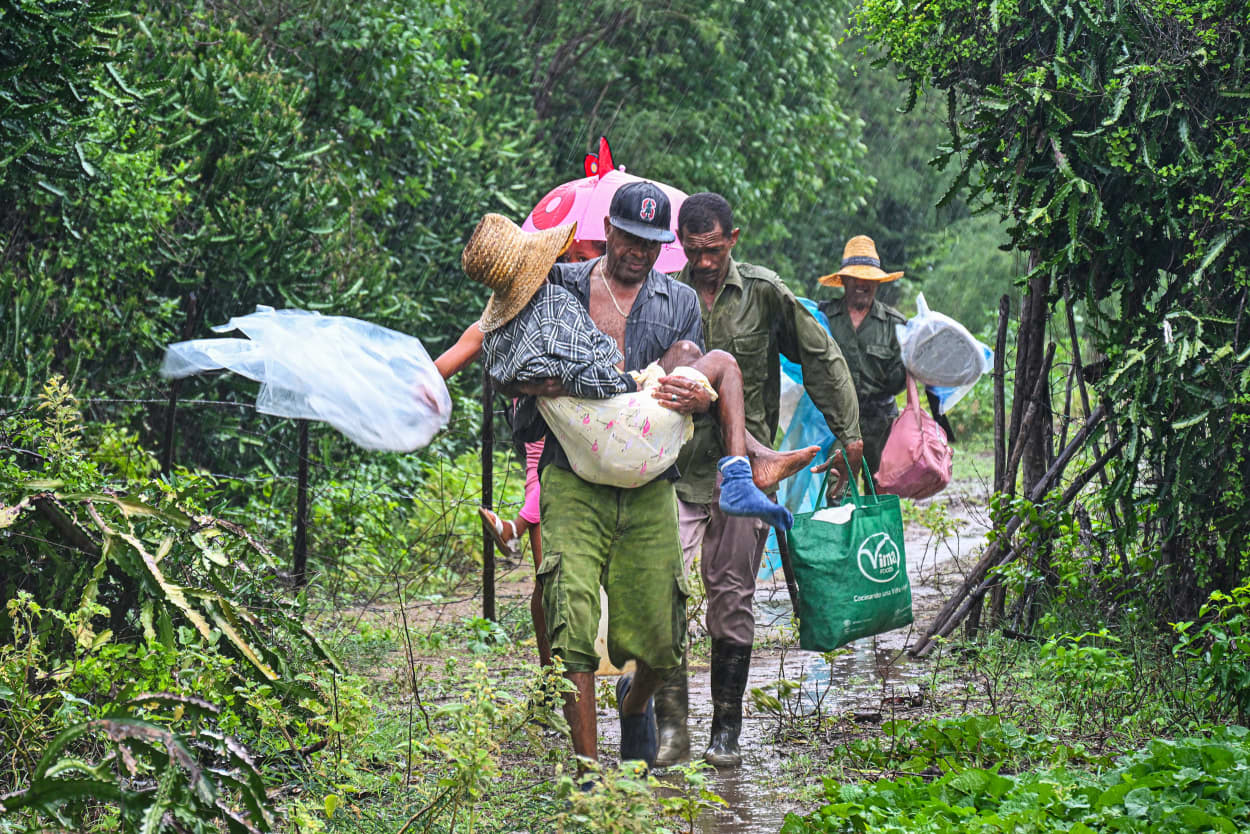
People self-evacuate ahead of the arrival of Hurricane Melissa, in Santiago de Cuba yesterday. Yamil Lage / AFP via Getty Images
The National Hurricane Center said this morning that Melissa made landfall on the southern coast of Cuba as an "extremely dangerous" Category 3 storm, with winds of 120 mph.
The storm hit near the city of Chivirico in the Cuban province of Santiago de Cuba.
Cuban President Miguel Díaz-Canel Bermúdez said that, as the hurricane hit, more than 700,000 people had been evacuated from their homes.
"It will be a very difficult night for all of Cuba, but we will recover, always with the faith in victory that Fidel and Raúl instilled in us," he said on X.
A hurricane warning is in place for much of Cuba — this means people should seek shelter immediately. A warning is also in place for the southeastern and central Bahamas, where "preparations to protect life and property should be rushed to completion," the hurricane center said.